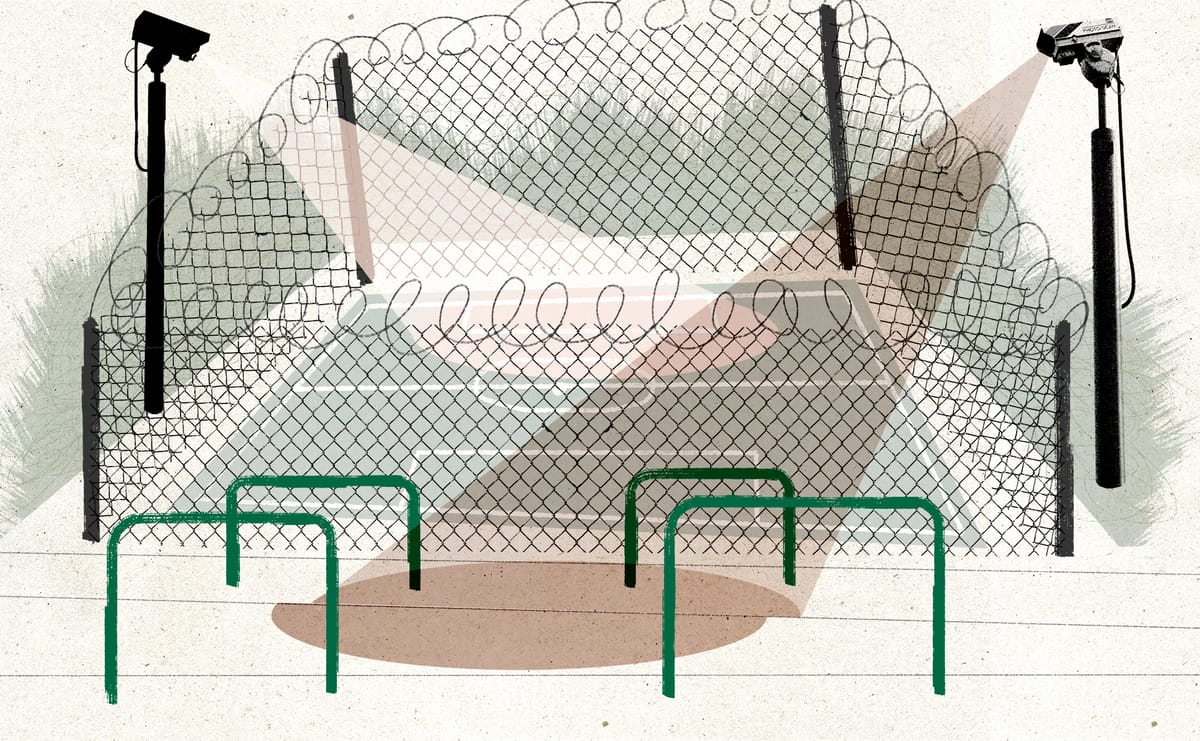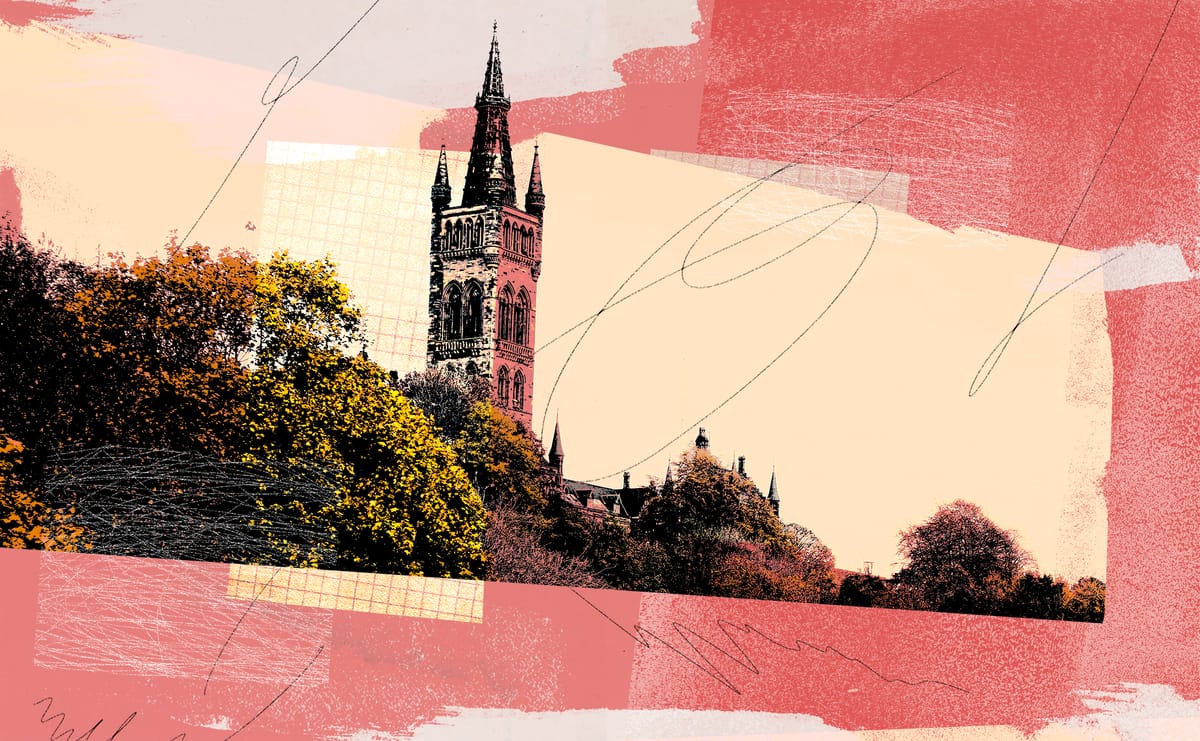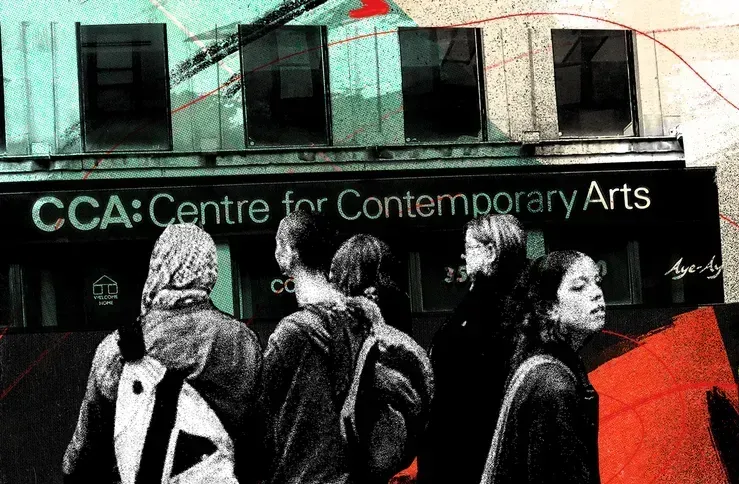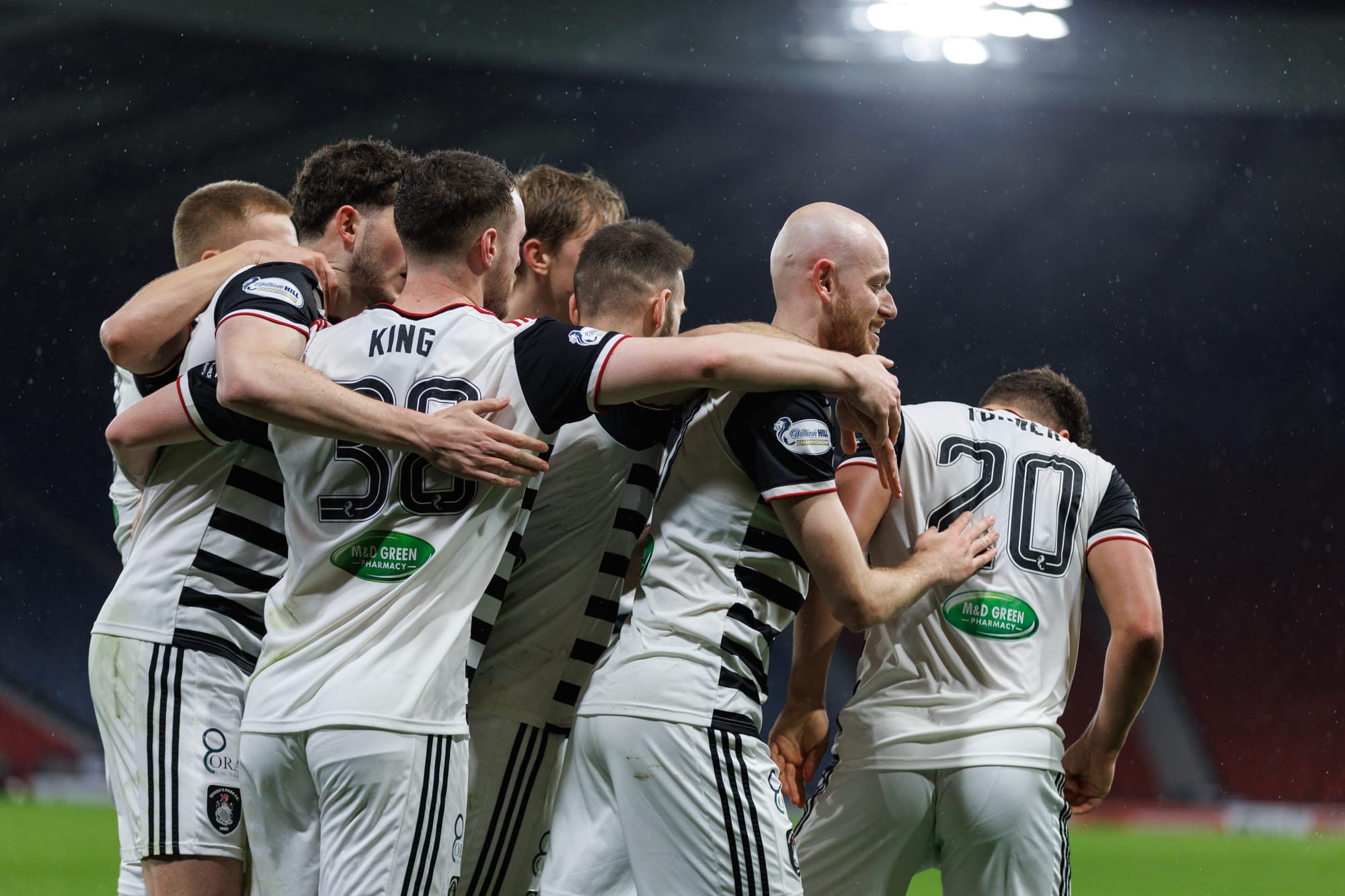To supporters of Queen’s Park Football Club, especially the ones who were there that night, the pub quiz is still a touchy subject. About 120 fans of the Southside club had paid a fiver a head on a mid-March, post-match Saturday evening to attend the quiz. Just a month earlier, the ‘Spiders’ had been celebrating one of the greatest victories in their 157-year history, an improbable and dramatic David vs Goliath ‘cupset’ over Rangers.
But now the mood was mutinous. After a dismal 4-0 defeat to Falkirk that afternoon, news had broken that popular manager Callum Davidson had been sacked. Shock and dismay soon turned to anger, directed by some towards the man they held responsible for the dysfunction that had been eating away at the Mount Florida club for months. The same man whose millions had helped to take Queen’s Park from the bottom of Scotland’s professional football leagues to the brink of the Premiership in under a decade: Lord Willie Haughey.
“Emotions were high,” says Andy McNaught, a long-time supporter. Amid the pints and gloomy predictions for the future, three pub quiz team names were chosen: ‘Haughey Out’, ‘Nepotism FC’ and ‘Big Fan ae Haughey’. There were some chuckles, some head shakes, and the quiz continued.
Just weeks later, more big news broke from Queen’s Park’s clubhouse, in the shadow of Hampden Stadium. Haughey, the Labour lord and refrigeration magnate, one of Scotland’s richest men, would be ending his financial backing of the club next year. One immediate implication was that the club’s feted academy, which had once produced Scottish captain Andy Robertson, would be dramatically downgraded, with staff facing redundancy. In May, Queen’s revealed that the club will need to find more than £4m in savings by next June to balance the books.
Reports soon began to surface that Haughey, while announcing his decision, had angrily raised the quiz team names. Supporters were in disbelief. Surely a pub quiz couldn’t have led to the future of the oldest league club in Scotland being thrown into jeopardy – could it?
The last amateurs
Founded in 1867, Queen’s Park FC are probably most famous for having resisted professionalisation for most of their history. When they finally gave up their amateur status in 2019, they were the last Scottish league club to do so. Their romantic reputation is enhanced by the club being effectively fan-owned. Supporters can pay an annual membership fee to elect a committee, which then nominates a club president.
Queen’s amateur status mattered little in the early days. Ten Scottish Cup triumphs between 1874 and 1893 make them Scotland’s joint-fifth most successful club to this day. But the ruthless reality of 21st century football eventually told. When promising young players such as Robertson — who went on to win the Champions League with Liverpool — left their youth academy, the club could not receive a penny.
The lost income and inability to sign players on long-term contracts with professional wages was unsustainable. They ended the 2013-14 season rock bottom of Scotland’s four professional divisions, surviving demotion to the anonymity of non-league football on a technicality: relegation was only introduced the following year.
Enjoying this edition? You can get two totally free editions of The Bell every week by signing up to our regular mailing list. Just click the button below. No cost. Just old school local journalism.
So in 2019, 91% of Queen’s members voted to ditch the romance and go professional. For Enzo Tamagnini, co-host of the Spiders Talk Podcast, being “safe from the trap door” was the deciding factor. He cites similar centenarians of Scottish football, such as Brechin City and Berwick Rangers, who are yet to return from the non-league abyss. “It’s proved that it was the right decision,” he says.
Also looming on the horizon at that time was the small matter of £5m. Queen’s Park had shared Scotland’s national stadium, the 50,000-capacity Hampden Park, with the Scottish Football Association (SFA) for over 100 years. In 2018, after protracted negotiations, the SFA agreed to buy the stadium from Queen’s Park for £5m.
A new dent in the universe
It was a landmark deal, financed in part by Lord Haughey, that would see Queen’s Park move into a redeveloped new home next door at Lesser Hampden, at the time a decaying training pitch. Emerging from the pandemic, Queen’s managed back-to-back promotions through the leagues, the former amateurs now bankrolled by one of Scotland’s most prominent businessmen. The club invested heavily in its youth set-up and in 2021 highly rated Dutch sporting director Marijn Beuker was signed on a ten-year deal.
“It was really exciting, and these things wouldn’t have happened without [Haughey’s] money,” says Tamagnini. But Haughey, now the club’s owner in all but name, was rarely mentioned by staff, and did not hold any official role on the club’s committee. Queen’s only acknowledged their newfound backing with a vague reference to “the generous support of one of our stakeholders” within the end-of-year accounts.

According to the club, Haughey’s connection to the Spiders was nothing more than generous sponsorship. But when Beuker landed in the Southside, his first words were for the Labour lord. “In the meetings I had with [then-chief executive] Leeann Dempster and Lord Willie Haughey, I quickly learned the important role Queen’s Park played in pioneering in the early stages of club football,” Beuker said.
The Dutchman said he was ready to “put a new dent in the universe”, telling supporters that he would have Queen’s Park in contention for European football within five years. Backed by Haughey, this was the brief period in which the Spiders’ modest base of match-going fans — between 500 and 900 on an average matchday — felt they had the world at their feet. Beuker’s project transformed Queen’s Park’s youth teams from industrious, amateur outfits to some of the very best in Scotland. The academy was granted prestigious ‘elite’ status by the SFA in 2023.
Beuker lasted just two years before he was poached by European giants Ajax of Amsterdam. During his time spending on staff wages rose from £1.3m in 2021 to £3.7m for the 18 months ending in June 2023.
Queen’s had lured veteran Scottish manager Owen Coyle to the Southside for the 2022-23 season. His expertise, and the goals of star striker Simon Murray, propelled the Spiders to challenge for promotion to Scotland’s top tier, the Premiership.
“That season was wild man, absolutely wild,” Tamagnini recalls.
Coyle was assisted by his son, also called Owen. “It was a bit of a rollercoaster,” Coyle Jr recalls. Many on the outside felt Queen’s had bought their way to the top of the league, but the 28-year-old disagrees. “The investment, particularly within the playing squad, wasn't out of context for the league and the teams who we were competing against,” he says.
The Spiders faltered after selling Murray to top-flight Ross County in January 2023, and on a tense title-deciding final day, they were beaten 3-5 by Dundee, who were promoted as champions. Coyle’s side then lost to Glasgow rivals Partick Thistle in the play-offs, drawing a line under any lingering promotion hopes.
Few clubs had ever risen through the Scottish leagues as quickly. The Haughey-backed Dutch model and palpable excitement among the Irn Bru Army (as some supporters like to be known) brought media attention and praise for the Spiders’ ambition. “Ambition is a word that gets used a lot,” says McNaught, who runs a Sunday league team for Queen’s Park fans. “But stupid could be used as well, the way it’s ended up.”
‘One of the worst football stadiums in Scotland’
Queen’s Park was not the first venture by Baron Haughey of Hutchesontown into Scottish football. Haughey, who made his fortune in refrigeration and facilities management, helped to alleviate debts at his favourite team Celtic in the 1990s. In 2001, his City Refrigeration company was announced as backers of the new Livingston FC team. Haughey spoke of his plans to build a state-of-the-art youth training complex for the club.
But Livingston entered administration in 2004 and their ex-chairman Dominic Keane was accused of a £2.3m fraud in 2009 (he was found not guilty). At the trial, Haughey denied ever having involvement with Livingston, despite City Refrigeration’s accounts suggesting otherwise.
The House of Lords member, who once tried to build his own ‘White House’ mansion on Glasgow’s green belt, is still a regular attendee at Celtic Park, and has been pictured alongside SFA hierarchy at Scotland matches. He declined The Bell’s request for comment for this story.
Back in 2023, while Queen’s Park were flying high on the pitch, trouble was brewing off it. The club reported a £750,000 loss for the 18-month period ending June 2023, following a previously reported loss of £1.08m between December 2020 and 2021. The Haughey-brokered Hampden deal had promised a new stadium next door at Lesser Hampden, but progress was slow.
Meanwhile, the club was forced to share grounds, first with rivals Partick Thistle in the West End, and then — during their run to the brink of Premiership glory — with Stenhousemuir, 25 miles away. “You can’t [grow the fanbase] if you’re playing in the West End or Larbert of all places,” says Tamagnini of the arrangements.
The overdue reopening of Lesser pushed Queen’s back into ‘big’ Hampden across the road for last season. Proposals for a compact, 2,000-seater stadium have gradually evaporated. Revised designs in 2021 promised “bigger and better” — £1.2m later and the ground currently has 900 seats, with plans for a second stand for 500 away fans shelved.
The solitary stand of black-and-white seats faces an eyesore that has come to embody supporters’ frustration. The oddly designed jet-black directors’ box now towers over the grass pitch — some fans have described it as “Sith-like”. “[Haughey’s] legacy is going to be one of the worst football stadiums in Scotland,” says Tamagnini.
Lesser has had more use as a hospitality venue than a football ground in recent years, another source of fan ire. Luxury facilities regularly welcome guests attending high-profile football matches and concerts at Hampden Park.
Some arrangements appear too convenient. Last summer, the Haughey-owned Burnside Hotel advertised hospitality packages at Lesser for a P!nk concert at Hampden. The hotel enlisted the assistance of DJ Stevie Lennon from Go Radio, another of Lord Haughey’s ventures.
The organisers of most of the “unforgettable hospitality experiences” at Lesser are QP Hospitality. The registered address for the two-year-old company is the Burnside Hotel. The benefit from all of this to Queen’s Park’s coffers is unclear.
Some supporters feel that Haughey’s influence over the club has been extensive, turning them into part-time conspiracy theorists. There’s boycotts of the 1867 Bar at Lesser, where Tamagnini suggests a “KGB-style” spying operation is underway on Haughey’s orders. Another fan insisted that the recording of his interview be deleted as soon as possible, for fear of losing his club membership.
In football, such suspicions grow arms and legs when results on the pitch are bad. This season, Queen’s finished eighth in the ten-team Championship, only avoiding relegation trouble as a result of Hamilton’s 15-point deduction. The final two months of the season were particularly bleak — the Spiders conceded 26 goals in nine matches, and last tasted victory on the first day of March.
A £4m black hole
In a recorded address to supporters released last week, club president Graeme Shields revealed that the club’s expenditure for last season was £5.7m. Shields faces the unenviable task of cutting that figure by £4.7m by June of next year to balance the books. The one-time elite academy is but the first victim of those impending cuts.
So after six years of professionalisation and corporate support, are Queen’s Park better off? Will it join the ranks of teams across Britain who flew too close to the sun with wealthy backers, only to tumble back to earth with a thud when those benefactors vanished? Is it foolhardy for fans to grasp at the chance of success, or should football ultimately be — as Queen’s motto states — about “playing for the sake of playing”?
Its amateur status was romantic but impractical, but some supporters just hope there will still be a team to support when Haughey’s funding ends. “People just want a normal football club,” Tamagnini says.

Queen’s Park announced the impending end to Haughey’s support on the back of successive 0-5 defeats. But the Labour donor had already broken the news on his own radio station. “Queen’s Park will not be in any financial bother whatsoever when our sponsorship deal is up,” he said. Go Radio host Paul Cooney then enthused to his boss over Lesser Hampden. “I mean look at the ground now that’s there,” he said.
As for the quiz team names, a source told the Daily Record they were more of a final straw than the primary reason for Haughey’s departure from Queen’s Park. “While I don’t think it was the sole reason he has withdrawn from the club, there is no doubt it didn’t help,” they said. “He has put a lot of money into the club and probably felt he wasn’t being fully appreciated.” Meanwhile chat on the Southside is that the appointment of Haughey-sceptical voices on the club's committee added additional dissent the Labour peer didn’t enjoy.
Haughey's only public explanation of the abrupt end to his years of multi-million pound investment is symptomatic of the mystery surrounding his interest in the Spiders in the first place. "Well, it's been a long time now," he told Go Radio.
Has the injection of cash helped Queen's Park long-term or given them a taste of the unsustainable? Let us know your thoughts on today's story in the comments.
Job alert! The Glasgow Bell is looking for a new editor after six months of incredible growth. If you're brimming with ideas and have a fresh take on the city, we want to hear from you. Click below for more details.









